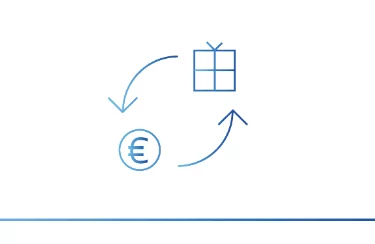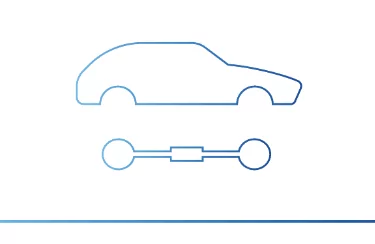We will find the right expert for your product innovation
For complex temporary projects, we are happy to provide you with our F&P experts with many years of experience.
Product innovation and product management with F&P
Companies have to deal with the improvement and further development of their products in order to meet customer requirements and create differentiating features in the competitive environment.
Our experienced industry experts support you in the areas of engineering, research & development, innovation and product management.
Product innovation: F&P stands for holistic solutions with a strong implementation focus
A new product innovation always represents a certain risk for a company. It is therefore helpful to consult an external expert who can look at the situation from a different perspective when making such a decision.
Our experienced managers can help you weigh up the benefits and risks of product development.
F&P Executive Solutions AG consultants can use their cross-functional experience and unbiased perspective to examine and assess how a company is positioned with its product portfolio.
Our experts and expert teams create concepts and, if required, also provide you with operational support in the successful implementation of these concepts in your company.
We support the following areas of a product innovation organization:

Engineering & product development
When you launch a new product on the market, it is usually a major project and a good interplay of various factors is required. Professional help is often required.

Research & Innovation
Innovation leads companies into the future. As a rule, it is planned innovation processes that lead to promising innovations.

Product management
Product management is the planning, control and monitoring of a company’s products and services. Product management always involves several departments within a company.

Our fields of activityIncreasing performance through operational excellence
Our experts take a holistic view of your value chain and design your processes with an intelligent strategy, which is then implemented in a customized manner.
Fast candidate selection in 48 hours:Ready for action for your success

Projectinquiry Fill out
Tell us about your project and what kind of expert you are looking for. If your project is complex and multi-faceted, we are your first partner to present you with experienced teams.

Get connected with the right expert
Within 48 hours, we will send you pre-selected profiles that are tailored to your project requirements.

Select your candidate
The onboarding process starts with a video call with your selected expert. If you are not yet convinced by the expert, we will be happy to find the right one on request.










